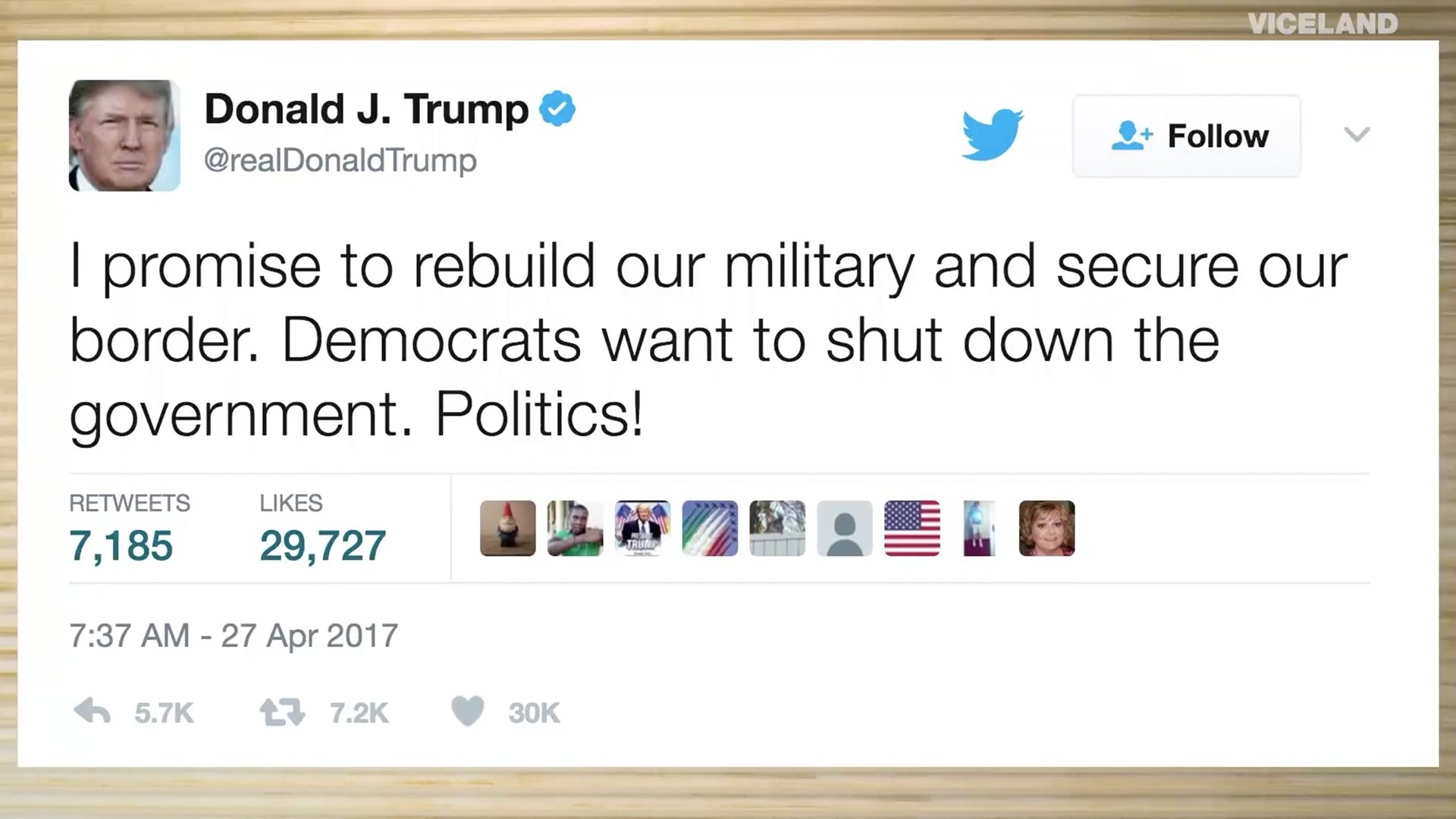Image via Pexels.
It’s hard to turn a completely blind eye to the state of the world and it’s politics. Having heard Donald Trump’s nauseating anecdotes and accusations made against Hillary Clinton that triggered my PTSD, I tried to shut it out. But it was everywhere. All of a sudden, it was all I saw on Facebook and Twitter.The current climate and the constant exposure to it affects our mental health on so many levels based on our race, gender, socioeconomic status. Social media has played a role in this because people feel free to address these issues in ways they would never say to the person standing in front of them, says Julie Barthels, a mental health professional with multiple certifications and co-author of the book, Resilience Revolution: A Workbook on Staying Sane in an Insane World,—this dehumanization of communication has increased the feeling of being under attack for vulnerable populations in our country.“People of color, Jewish, or Muslim have all identified that they believe racism has been validated within the current administration and that this makes them vulnerable to hate crimes or discrimination. They report being more aware when they are out in public for signs of potential violence If they had anxiety prior to this current political landscape, this has magnified it,” Barthels said.Jenna Witkowski, Licensed Master Social Worker at the Buffalo Psychiatric Center Office of Mental Health, said that nearly every person she works with has been impacted in some way and discusses an aspect of it during sessions. “Some are concerned about what their financial futures hold—student loan payments, tax payments, health care—and how the financial aspect of the election will impact their personal life decisions,” she said. “Others discuss concern about how they can handle just sitting atdinner with their families, knowing that political discussions are evident and often heated.”Scott Dehorty, LCSW-C, observes that while we have been a distinct two-party system for a long time, those two parties seem to be growing more and more at odds with one another.
Check out more videos from VICE:
“With this increase in disagreement, we have begun to define people according to their beliefs and the side they line up on. Even within the same family system, people are separating based on politics,” he said. “It’s similar to how, in the 1960’s and 1970’s if someone had long hair, that must mean they are a hippie, anti-war, which means anti-America, they are on drugs, unemployed and unemployable, most likely dangerous due to the drugs and desperation of having no money, and on and on. The person was categorized based on one fact. “He continued to say that today, if someone wears a Make America Great Again hat, people do the same thing; they make assumptions regarding the individual’s stance on race relations, immigration, the economy, healthcare, and a host of other complicated matters.“I have a client that wears that hat to his liberal college just for the reaction and so that people leave him alone,” he said. “He has anxiety and fears social interaction. The hat keeps people away. While it is not the best solution for his anxiety, it shows how our judgements can be off base.”Nervous Nation: An Inside Look at America’s Anxiety in the Age of Trump, a 2017 study examining the correlation between the 2016 presidential election and Americans’ anxiety levels, Sound that about 71 percent percent of Americans ages 18-44 report feeling anxious due to the results, and 64 percent agree that Donald Trump as president is causing more people to have anxiety.From social media to local and national radio and television outlets, people have shifted from debate to fight, from differences of opinions to calling each other “snowflakes, bullies, predators, sympathizers,” according to Josh Klapow, Ph.D. a clinical psychologist with the School of Public Health, University of Alabama at Birmingham.“The consequences include verbal and physical altercations, blocking and unfriending on social media, loss of friendships, family ties, relationships. Those in the ‘fight’ response group are fighting everyday, experiencing and feeling attacks. [Those in flight] are running away from their thoughts and beliefs for fear of being attacked,” he says.Callie Wright, a transgender woman and host of The Gaytheist Manifesto podcast, said that starting on election night, she saw a few of her trans friends questioning whether or not life was about to be so difficult that it wouldn’t be worth living anymore. That anxiety, while not as acute, has continued through the last year.Wright says that she’s seeing more of her friends taking breaks from social media or adding caveats.“I have one friend who regularly makes posts where she asks people not to comment at all because she doesn’t have the emotional bandwidth to moderate the comments. I have another friend who left YouTube after the comments on her videos became so numerous and toxic she couldn’t handle it anymore.”Recognizing that social and political issues are likely to elicit very strong emotions in you and others is also another way to protect yourself, says Klapow. “Be much more cautious about getting into these discussions. Make sure you feel safe with the person you are discussing the topics with,” he said. “If you are consumed by the topics, if you are not able to engage in daily activities, if you feel nervous, sad, angry most of the time, you need to back off. If you can’t you need professional help.For Wright, community is the obvious solution, but the same fatigue she mentioned earlier takes its toll in those communities as well.“Don’t be afraid to curate your corner of the internet based on your mental health and emotional well being. Don’t be afraid to stop fighting with trolls on the internet. Don’t feel guilty for using that block button,” she said.There are so many movements taking place every day, whether it’s online, in meeting rooms, or spread across various cities and states, that taking action to do something about the cause you care about can instantly help shift your perspective. If you're concerned about specific policies, call your local state representatives. Resolve not to get into Twitter or Facebook battles that truly nobody can win.
Advertisement
People are feeling tired and apathetic, seemingly hoping to escape what is going on around them. Some have described a sense of feeling like they are overwhelmed and preoccupied with societal issues as they currently stand, not knowing what they can do specifically to contribute to a less hostile environment.“With this increase in disagreement, we have begun to define people according to their beliefs and the side they line up on."
Advertisement
Check out more videos from VICE:

“With this increase in disagreement, we have begun to define people according to their beliefs and the side they line up on. Even within the same family system, people are separating based on politics,” he said. “It’s similar to how, in the 1960’s and 1970’s if someone had long hair, that must mean they are a hippie, anti-war, which means anti-America, they are on drugs, unemployed and unemployable, most likely dangerous due to the drugs and desperation of having no money, and on and on. The person was categorized based on one fact. “He continued to say that today, if someone wears a Make America Great Again hat, people do the same thing; they make assumptions regarding the individual’s stance on race relations, immigration, the economy, healthcare, and a host of other complicated matters.“I have a client that wears that hat to his liberal college just for the reaction and so that people leave him alone,” he said. “He has anxiety and fears social interaction. The hat keeps people away. While it is not the best solution for his anxiety, it shows how our judgements can be off base.”Nervous Nation: An Inside Look at America’s Anxiety in the Age of Trump, a 2017 study examining the correlation between the 2016 presidential election and Americans’ anxiety levels, Sound that about 71 percent percent of Americans ages 18-44 report feeling anxious due to the results, and 64 percent agree that Donald Trump as president is causing more people to have anxiety.
Advertisement
“I’m seeing a lot of activist fatigue. There’s need for a new march or rally every week it seems. I’ve personally felt a very strong push and pull between the need to be present for the fight, and the need to take care of myself. It’s exhausting,” she says. “ You deal with guilt any time you burn out and decide to take time for yourself, there’s the constant guilt that comes with knowing you’re not out there fighting for people less privileged than yourself.”Unplugging seems to be an obvious answer to all of the above, but many of us are not inclined to disconnect entirely as there are so many important, fun, and non-terrifying things available on social today.
Advertisement
Unplugging seems to be an obvious answer to all of the above, but many of us are not inclined to disconnect entirely as there are so many important, fun, and non-terrifying things available on social today. Fortunately, there are settings that allow you to unfollow certain folks on Facebook without unfriending them and starting a war, and you can unfollow or block Twitter accounts you see that upset you.Dehorty says that depression and anxiety are what cause us to feel powerless and even meaningless. Getting involved in some capacity at some level will help.
“Speak with local representatives, find a cause you are passionate about and get involved either at a grassroots or political level with that cause. Part of the issue is feeling that all of these things are happening and there is nothing we can do, that is only true if we do nothing,” he said.If someone wears a Make America Great Again hat, people do the same thing; they make assumptions regarding the individual’s stance on race relations, immigration, the economy, healthcare, and a host of other complicated matters.
Advertisement
